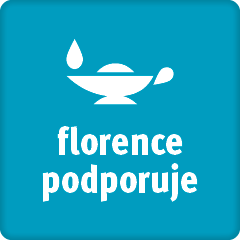


Číslo 1 - 2 / 2014
Influenza

Influenza is an acute contagious respiratory illness transmitted by droplets. It is caused by influenza viruses A, B and C, which get through the mucous membrane in the respiratory tract. The incubation period is one to three days. Influenza activity peaks in winter period, particularly in February and March.
Nurse: Good morning, Mr Harris. What troubles you?
Patient: Good morning. I would like to see the doctor. I think I’ve got flu.
Nurse: How come?
Patient: I’ve had muscle ache and joint pain for a couple of days, and I had a fever yesterday. Moreover, I have a headache and a sore throat.
Nurse: Have you taken any medicine?
Patient: Yes, I’ve had paracetamol and some sore throat lozenges and tea with honey.
Nurse: It might only be a virus; people often mistake it for flu. But let’s see what the doctor tells you.
Patient: And what’s the difference?
Nurse: Flu symptoms include high temperature, aching muscles and joint pain, weariness, tiredness and loss of appetite. But it often leads to a bacterial infection that can develop into bronchitis or pneumonia, and occasionally into pleurisy (inflammation of the pleurae), or myocarditis (inflammation of the heart muscle).
Patient: Oh, I’d rather avoid that. Is there any way of preventing it?
Nurse: One possibility of effective flu prevention is vaccination. The best time to get the flu jab is in the autumn.
Patient: And isn’t there a risk of getting ill after being vaccinated? I’ve heard a lot of people saying that they got the flu jab and got ill afterwards.
Nurse: That’s nonsense. The vaccination can cause side effects: most commonly a short-term swelling or redness appears at the site of injection, or you may feel tired or experience muscle and joint pain and fever, but these side effects will disappear quickly and don’t require treatment.
Patient: Ok. And where should I go if I decide to get the vaccination?
Nurse: You should call us, because the flu vaccine is available from your GP. But you can also check with a vaccination centre or with the department of infectious diseases at a hospital. You should pay for it yourself and you will need a further vaccine each year.
Patient: Well, thank you very much for the information, nurse.
Nurse: You are welcome. You can see the doctor now, she’s free.
| to transmit | přenášet, šířit; předat; sdělit; vysílat |
| droplet | kapička, kapénka |
| to peak | vrcholit, kulminovat, dosáhnout maxima |
| to trouble | trápit, zlobit; rušit |
| how come | jak to, proč |
| moreover | navíc, nadto, kromě toho |
| lozenge | pastilka |
| to mistake something/body for something/body else | zaměnit něco za něco, splést si |
| weariness | malátnost, únava |
| rather | raději, spíše; trochu, poněkud |
| effective | účinný, efektivní |
| jab | očkování, injekce |
| to get ill | onemocnět |
| afterwards | potom, poté, později |
| nonsense | nesmysl, hloupost |
| swelling | otok, opuchlina, zduření |
| redness | zarudnutí |
| to require | vyžadovat, požadovat |
| to check with | obrátit se na |
Lekce angličtiny pro časopis Florence připravuje překladatelská agentura ACP TRADUCTERA (www.traductera.com).
Ilustrační foto – zdroj: https://www.vitamindcouncil.org
Další články v tomto čísle
- Vstupte do nového roku bez podnosnice libočudné
- Přání hlavní sestry ČR
- Když se řekne cystická fibróza
- I nemocné děti musejí žít naplno (příběh pacientky)
- Pomoc s odvykáním kouření – standard ošetřovatelské péče
- Hodnocení stavu výživy seniorů v Nemocnici ve Frýdku-Místku
- Postavení mentora v současné klinické praxi
- Proč dochází k násilným incidentům při ošetřování pacientů?
- Vplyv neúspěšného dojčenia na psychiku žien
- Světový den boje proti dekubitům





















